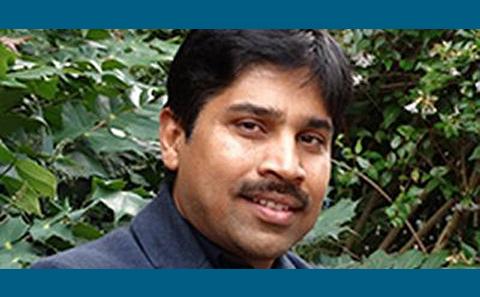Professorial Inaugural Lecture, Prof. Tapas Mishra - Growth in a "Memory Lane" Seminar

- Time:
- 18:00
- Date:
- 26 June 2019
- Venue:
- Building 2, Foyer and room 3043 Highfield campus University of Southampton Southampton SO17 1BJ
Event details
Both forgetting and remembering have defined virtues, but the one that has continued to trouble a system’s aspiration for a persistent growth is the strong memory of a bad shock or a tirade of bad shocks.
Such shocks work in intricate ways, propagating faster at times of heightened uncertainties and keeping low at times of relative stability, but seldom completely disappearing from a system’s core. The way shocks evolve and proliferate determine the trajectory of the whole gamut of socio-economic-environment system. In particular, the past century of theorisation and empirical design of economic growth of nations has unknowingly centred on the dynamic effects of shocks, duly modelled by the concept of memory, one that approximates the realm of psychology and has a strong root in the evolutionary theory. In this talk, I present theories of the origin of shocks and their modus operandi from a historical perspective and then demonstrate – by drawing on the advancement in the field, including my own decade of research – (i) how it is possible to still grow persistently and with stability, without fully eliminating shocks from a system, and (ii) how and why identification of true convergence patterns of shocks is important for identifying the nature of growth – endogenous or exogenous. The latter distinction has much to do with the way economies grow and policy interventions can control the trajectories of such growth processes. I present theory and evidence that it is the nature of the memory of shocks which govern the extent endogenous policy interventions are effective. I also discuss mechanisms which show that learning to co-move with some undying shocks in an economy is superior in terms of welfare achievements (it is the second-best solution). It is, summarily, a talk about the nuances, strategies and implications of a possible persistent growth of nations in the ‘memory’ lane.
Agenda
18:00: Registration, refreshments and networking (by the entrance of Building 2)
18:45: Keynote seminar (in room 3043)
19:30: Q & A
20:00: Event Close
Speaker information
Professor Tapas Mishra ,is a Professor of Banking and Finance and the Director of the Centre for Empirical Research in Finance and Banking at the Southampton Business School, University of Southampton. Tapas currently researches on models of long-memory and studies its complex nature of dynamic impacts on an interdependent system. Apart from the economic and financial problems, his concerted efforts to model ‘memory’ patterns in agents’ subjective well-being have produced research of high impacts and policy relevance. Tapas emphasizes on the necessity of combining deep multidimensional theoretical rigor to the real-world policy experience, the latter he immensely benefitted from while serving as a scientist at the International Institute for Applied System Analysis in Austria and as a senior researcher at the Institute for Future Studies in Sweden. He has led a number of (both national and international) grant-funded research dealing with various socio-economic-financial problems. He serves as an associate editor of leading economics and finance journals and is an award winning educator.